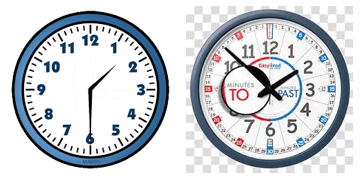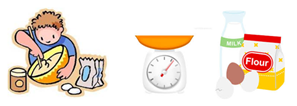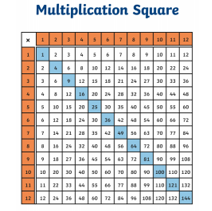Maths Workshop: What is Maths and how can I Support my Child at Home?
“Mathematics is a creative and highly inter-connected discipline that has been developed over centuries, providing the solution to some of history’s most intriguing problems. It is essential to everyday life, critical to science, technology and engineering, and necessary for financial literacy and most forms of employment.”
National Curriculum for Mathematics
Mathematics teaches children how to make sense of the world around them through developing their ability to calculate, reason and solve problems. It enables children to understand relationships and patterns in both number and space in their everyday lives.
What can I do to help my child at home?
Top tips:
- Try to be positive about maths. Avoid saying things like “ I’m no good at maths, “I can’t do maths,” or “Maths is hard!”
- Get excited about the maths you can spot everywhere in your daily life with your child.
- Praise your child for their effort and their ideas in maths.
- Accept that mistakes are part of their learning. Enjoy chatting about maths together and working out together how they’ve worked something out.
Asking questions
We encourage pupils to use and explain their choices of strategies whilst continuing to deepen their number sense. Through increased opportunities for reasoning, pupils articulate ‘why’ and ‘how’ and are encouraged, through questioning, to explain their ideas further. They are encouraged to ask questions; developing a curiosity for number and enjoyment of maths.
What’s the same? What’s different?
What would one more/less be? What do you notice?
What can you tell me about…? What else can you see?
Can you find another way to do that?
Opportunities for Maths at home:
Throughout your child’s journey in maths, practical, real-life opportunities for maths are key to develop their understanding, enjoyment and confidence.
For younger children:
- Looking for numbers in the environment – on doors, signs as well as counting objects you see.
- Making models with lego – counting what you see and chatting about the position of pieces.
- Playing board games with dice – aim to be able to recognise numbers on the dice by sight.
- Practice subitising numbers – recognising numbers without counting them.
- Enjoy counting, recognising and discussing the maths in storybooks when reading with your child.
- How many bears are there?
- How many things did Goldilocks break?
- How many birds are there on the page? Etc
As your child gets older:
- Talk about the time:
- Have a clock in your house.

- How long does it take to do things? What does 1 minute or 5 minutes feel like?
- What does the clock look like at bedtime?
- What time is their swimming lesson?
- What time will it be if it needs 30 minutes to cook and we put it in the oven at a certain time?
- Practice telling the time together
- Enjoy baking together- plenty of opportunities for weighing, measuring and comparing amounts.

And for older children:
- Following recipes and working out how much food is needed for the family meal.
- Working out which are the best buys in the supermarket, checking change, working out sale price of an item.
- Estimating how long a journey will take and working out what time you could arrive.
- Reading data presented in a variety of forms, such as graphs and tables, scales on a thermometer or weighing scales, and interpreting statistics in the news.
Early Maths:
There are lots of great resources for early maths online including BBC’s Numberblocks series:
- https://www.bbc.co.uk/cbeebies/shows/numberblocks
- https://www.bbc.co.uk/iplayer/episodes/b08bzfnh/numberblocks
Extra guidance from the BBC to support your child:
Times Tables:

Learning and understanding times tables is important. Understanding and recall of these facts will help your child in other areas of maths.
Useful online materials:
https://www.bbc.co.uk/teach/supermovers/times-table-collection/z4vv6v4
https://www.topmarks.co.uk/maths-games/hit-the-button
Top tips:
https://home.oxfordowl.co.uk/blog/times-tables-tips/
Our Maths calculation policy – lots of links to show how calculations look in each year group:
http://chcacademy.co.uk/media/8037/clee-hill-community-academy-progression-in-calculation-policy.pdf
Further ideas to help support mental maths skills:
https://home.oxfordowl.co.uk/blog/how-to-help-your-child-with-mental-arithmetic/
Other top tips and resources to support maths learning:
https://home.oxfordowl.co.uk/maths/
https://home.oxfordowl.co.uk/maths/primary-addition-subtraction/
https://home.oxfordowl.co.uk/maths/primary-multiplication-division/
Confidence and mindset:
Feeling confident when working in maths means that your child is more likely to have a go and learn new skills. It’s great to encourage your child to have a go and to explore all the possibilities when talking about their ideas and maths. There are often lots of ways to approach their questions and they may use lots of different ways. It’s a great challenge to ask them if they can find another way to answer a question! Remember that mistakes are important.
https://www.youcubed.org/resources/parents-beliefs-math-change-childrens-achievement/








